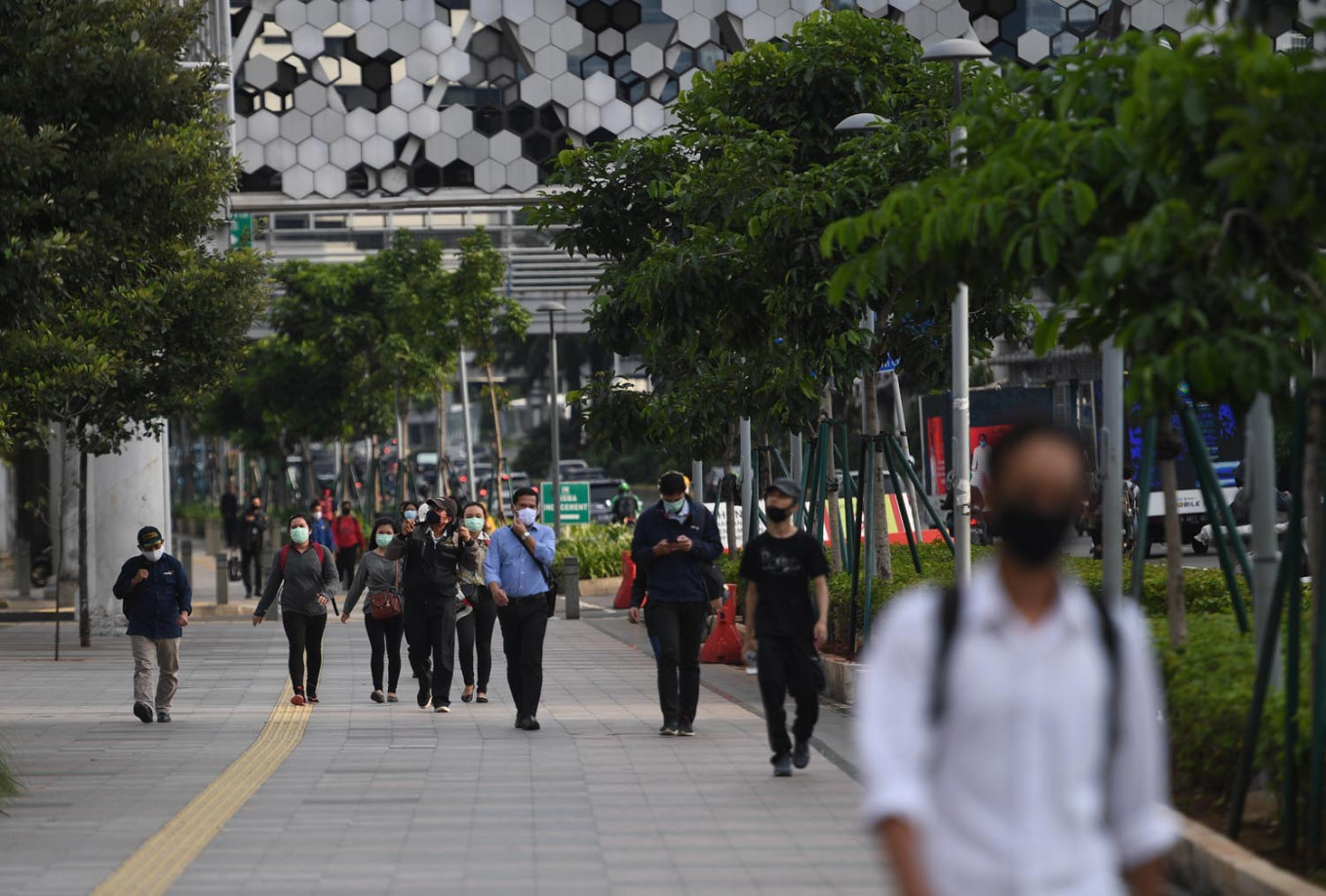Popular Reads
Top Results
Can't find what you're looking for?
View all search resultsPopular Reads
Top Results
Can't find what you're looking for?
View all search resultsReturning to work safely
Employers and unions, or any workers’ representative body, can look to businesses in other countries that have designed their own health protocols and to the World Health Organization’s website, which issued guidelines for the workplace in March.
Change text size
Gift Premium Articles
to Anyone
T
he SARS-CoV-2 virus is highly contagious, but it is impossible for most of us to stay stuck at home forever, except perhaps those who are self-employed and own sophisticated equipment. Creative workers, such as advertisers handling big files, for instance, may be frustrated with slow internet connections that hamper their ability to deliver their sparkling ideas to tight deadlines.
Under the policy of large-scale social restrictions (PSBB), each province, regency and mayoralty have determined their own limits, with the Tegal mayoralty in Central Java being the first to lift its lockdown. The capital may see its final PSBB extension end on June 4, but family pictures of happy Idul Fitri gatherings suggest many have ignored Governor Anies Baswedan’s calls for residents not to participate in a local mudik (exodus), meaning a homecoming within Greater Jakarta, which may have raised the risk of a spike in new infections on the heels of the religious holiday.
Read also: Eid in time of pandemic: Quiet and lonely but modest and solemn
President Joko “Jokowi” Widodo has warned we might see ups and downs in the spread of infections even after the lifting of PSBB measures. Therefore, workplaces need to determine as soon as possible what their new health protocols will be to provide a sense of security for both their staff and business partners.
Health Minister Terawan Agus Putranto has announced health protocol guidelines for businesses for the era of the “new normal”.
Therefore even after local authorities have removed the PSBB measures, daily life at work faces long-term challenges. Employers and unions, or any workers’ representative body, can look to businesses in other countries that have designed their own health protocols and to the World Health Organization’s website, which issued guidelines for the workplace in March.
In general, those who return to their workplaces should be essential workers who are healthy; those even with mild symptoms of COVID-19 must stay home and be given sick leave. The WHO also advises businesses to display educational posters on safe distancing practices, encourage proper hygiene such as regular hand washing and disinfecting of work surfaces and retain the contact details of meeting participants for purposes of contact tracing.
Local authorities also must constantly monitor public transportation. While buses and trains are expected to operate at 50 percent capacity, scenes of crowded terminals and stations show the daily risk of additional infection clusters. Can authorities trace contacts from even one single rush hour?
Read also: Scientist warns of second COVID-19 wave in East Java after Idul Fitri
Businesses should discuss the health protocols of the new normal with their employees and unions, including regarding shift work; the Health Ministry guidelines state that night shifts should be eliminated where possible. This poses a great challenge for factories designed to operate 24/7. People will comply if there are sufficient incentives. Shift workers, for instance, will not want to forgo the night shift if it means they cannot earn enough to pay their rent, while deskbound workers will prefer to work from the office if they have to pay too much for a smooth internet connection.
However terrible this pandemic has been, maybe more attention will be paid to people’s wellbeing, even if it means losses to short-term profits.










